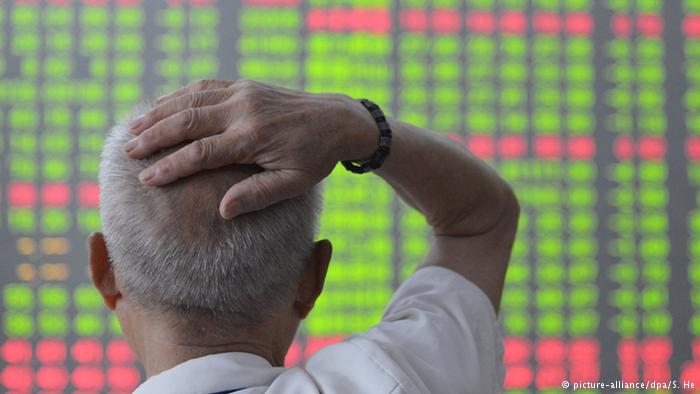Markets
Aggressive Profit Taking Amid Uncertainty Erases $660 Billion from Chinese Equity

- Aggressive Profit Taking Amid Uncertainty Erases $660 Billion from Chinese Equity
China’s equity market fell on Thursday following a 1.2 percent decline in the value of its local currency. The largest one-day decline since August 2015 when People’s Bank of China devalues the Yuan by 1.9 percent against the U.S. dollar.
Experts believe the drop in global equity value this week and the uncertainty surrounding the possibility of Shanghai Composite Index sustaining its 742 days bullish run even with the better than expected economic growth rate in 2017, drove most investors to start profit taking.
According to Stephen Innes, Asia Pacific head of trading at Oanda in Singapore, “People are aggressively taking profit. They just want to unwind risk and take cash. The slide of Chinese equities in the past few days has definitely had an impact on the currency.”
The Chinese economy grew at a 6.9 percent rate in 2017, exceeding PBoC’s 6.5 percent projection for the year and the 6.7 percent recorded in the previous year. Making it the first annual acceleration in seven years.
The world’s second-largest economy started the year strong, with the Shanghai Composite Index gaining consistently in January and onshore yuan rising more than other currency in Asia. However, the issue of protectionism, change in the economic model, credit, and pollution controls are likely to weigh on growth in 2018. This, Chi called ‘creative destruction.’
The economy is going through a phase of “creative destruction” as new vibrant sectors powered by technology like e-commerce and online financial services coexist with still-dominant old economy sectors, said Chi Lo, BNP Paribas Investment Partners economist for Greater China.
However, growth in the old economy is still more than the new economy, therefore, “when you mix the two together, there is an inherent drag on growth,” Chi told CNBC.
“The power of creation is not yet strong enough to overwhelm the power of destruction in the economy, but the transition is structurally positive,” he added.